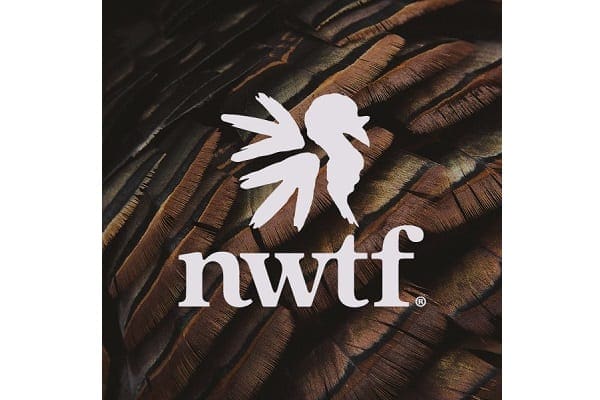NWTF Announces Leadership Transitions

Becky Humphries to Retire in 2023; NWTF Board of Directors Names Kurt Dyroff and Jason Burckhalter to Serve as Co-CEOs
EDGEFIELD, S.C.—The National Wild Turkey Federation today announced that Becky Humphries, its CEO since 2017, will retire in February 2023 as the organization celebrates its 50th anniversary. To succeed her, the NWTF Board of Directors has appointed Jason Burckhalter and Kurt Dyroff, two of the organization’s top staff executives, as co-CEOs, effective immediately. Humphries will serve with them until she steps down.
“Building on Becky’s accomplishments and to prepare the NWTF for the future, the Board decided, after careful consideration, to tap the unique experiences and energy of not just one but two of the organization’s top executives,” said Bryan Perry, president of the NWTF Board of Directors. “Kurt and Jason have established proven track records as effective, forward-thinking senior executives and strong collaborators in managing the organization’s key operations. We believe Jason and Kurt will make an effective team to lead the NWTF.”
Under the NWTF’s co-CEO model, Dyroff will lead the organization’s mission-related activities, including conservation, finance and accounting, and general business support (legal, human resources and land holdings). Burckhalter will oversee membership and fundraising-related duties, including field operations and development, marketing and communications, membership, information technology, and facility management. Humphries will continue as part of the NWTF leadership team, overseeing government affairs until her retirement when those duties will transition to Dyroff.
Burckhalter has been the NWTF’s chief information officer for the past three years and before that served as its vice president of finance and controller. Prior to joining the NWTF in 2013, he held various executive roles with for-profit entities, including as CIO/COO of a national multi-site operation. Burckhalter is a graduate of Lander University where he earned a bachelor’s degree in finance/economics. He received an MBA from Augusta University and an accounting degree from Auburn University.
Dyroff has been the NWTF’s chief business and finance officer for the past three years, and previously held positions as director of business development, acting chief of conservation, and as western director of conservation operations. Before joining the NWTF in 2014, he served in various conservation-focused executive capacities at Ducks Unlimited for nine years. Dyroff is a graduate of The Pennsylvania State University where he earned a bachelor’s degree in civil engineering with a minor in environmental engineering.
In a joint statement, Burckhalter and Dyroff outlined their priorities for the organization:
“We look forward to building upon the NWTF’s nearly 50 years of success. The future is bright and reminds us how the NWTF achieved it: our mission and people. The NWTF will increase focus on our membership and member experience and bolster research and habitat delivery in areas experiencing wild turkey population decline. Our mission, as ever, is to ensure robust wild turkey populations, while benefiting healthy forests, waterways, and communities, and championing the soul of the American hunting lifestyle. This requires a nimble organization, built on a solid financial foundation, capable of retaining and attracting the best and brightest minds.”
About the National Wild Turkey Federation
When the National Wild Turkey Federation was founded in 1973, there were about 1.3 million wild turkeys in North America. After decades of work, that number hit a historic high of almost 7 million turkeys. To succeed, the NWTF stood behind science-based conservation and hunters’ rights. Today, the NWTF is focused on the future of hunting and conservation through its Save the Habitat. Save the Hunt. initiative. Since 2012, this 10-year initiative has already eclipsed goals of conserving or enhancing more than 4 million acres of essential wildlife habitat, recruiting or retaining more than 1.5 million hunters and opening access to more than 500,000 acres for hunting and other recreation opportunities. This critical work will continue to impact wildlife habitat and our great outdoors in the final years of the initiative.
